These feathered divas will steal your heart while testing your patience.
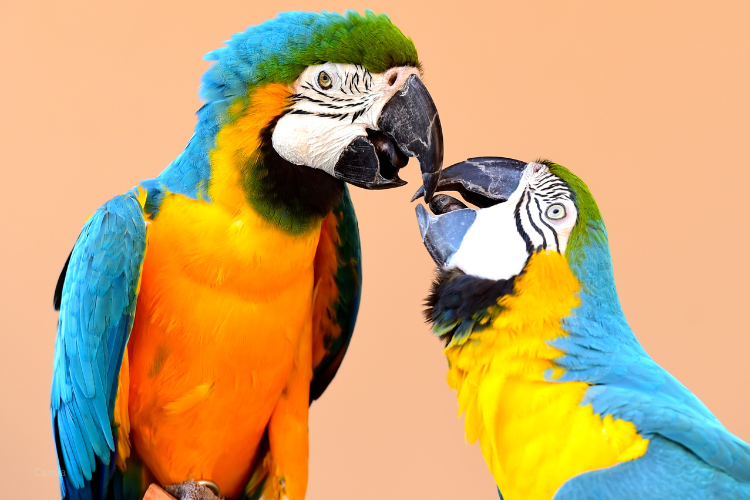
Both macaws and cockatoos command attention like seasoned performers taking center stage. Their intelligence rivals that of young children, yet their emotional needs can overwhelm even the most dedicated bird enthusiast. These magnificent creatures share remarkable similarities that make choosing between them feel nearly impossible.
What sets them apart becomes clear once you understand their distinct personalities and care requirements. While macaws dazzle with their rainbow plumage and bold attitudes, cockatoos captivate with their expressive crests and affectionate nature. Each species brings unique challenges that can transform your daily routine into an adventure you never anticipated.
1. Macaws tower over most cockatoos in sheer physical presence.
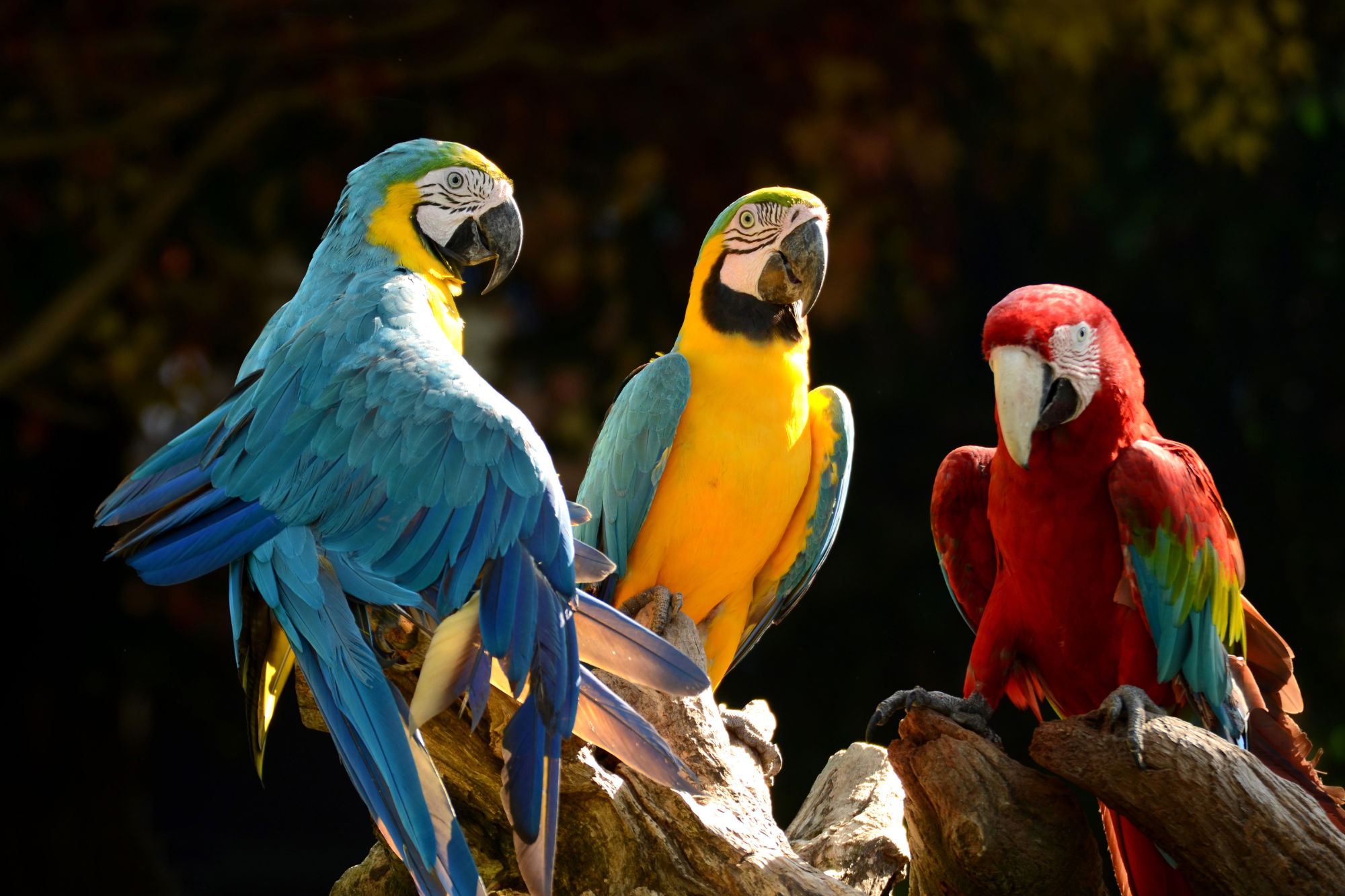
Size matters when you’re sharing your living space with a bird that can span three feet from beak to tail. According to the International Association of Avian Veterinarians, large macaws like the Blue-and-Gold can weigh up to 2.6 pounds with wingspans reaching four feet. Their imposing stature commands respect and requires spacious accommodations that many bird owners underestimate.
Cockatoos present a more manageable package, with most species weighing between one to two pounds. Their compact build makes them easier to handle during daily interactions, though their personality often compensates for what they lack in physical intimidation. The size difference becomes particularly apparent during flight exercises and when designing appropriate housing solutions.
2. Decibel levels reach extraordinary heights with both species.

Morning wake-up calls from either bird can rattle windows and test neighborhood relationships. Macaws produce sharp, piercing screams that carry for miles in their natural habitat, while cockatoos favor ear-splitting shrieks that demand immediate attention. Both species use their vocal power to communicate excitement, distress, and their need for social interaction, as reported by the American Federation of Aviculture.
Managing noise becomes a daily negotiation that requires patience and understanding. These birds aren’t being malicious when they vocalize at dawn or dusk. Their biological clocks trigger natural calling behaviors that helped their wild ancestors maintain flock communication across vast distances.
3. Intelligence levels challenge even experienced bird handlers.
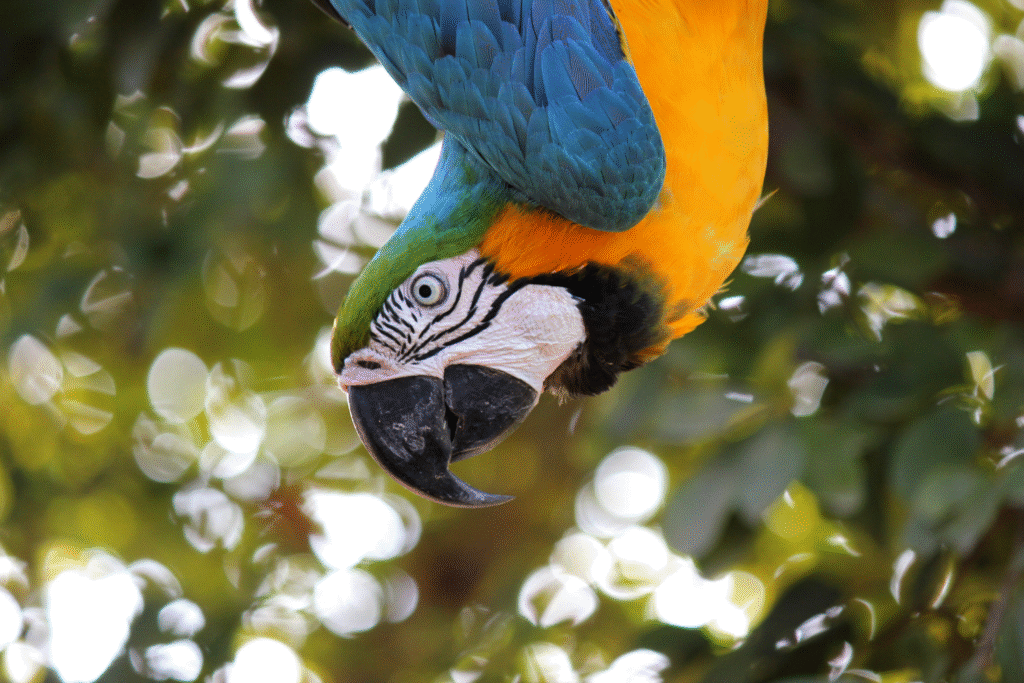
Problem-solving abilities in both species rival those of young children, creating endless entertainment and occasional frustration. Macaws excel at manipulating complex puzzle toys and can learn to associate dozens of words with their meanings. As discovered by Dr. Irene Pepperberg’s extensive parrot research, large parrots demonstrate cognitive abilities comparable to four-year-old humans.
Cockatoos approach intelligence differently, often showing superior emotional intelligence and social awareness. They read human body language with uncanny accuracy and adjust their behavior accordingly. This emotional sophistication creates deeper bonds with their owners but also leads to more complex behavioral challenges when their social needs aren’t met.
4. Lifespan commitments span multiple human generations.
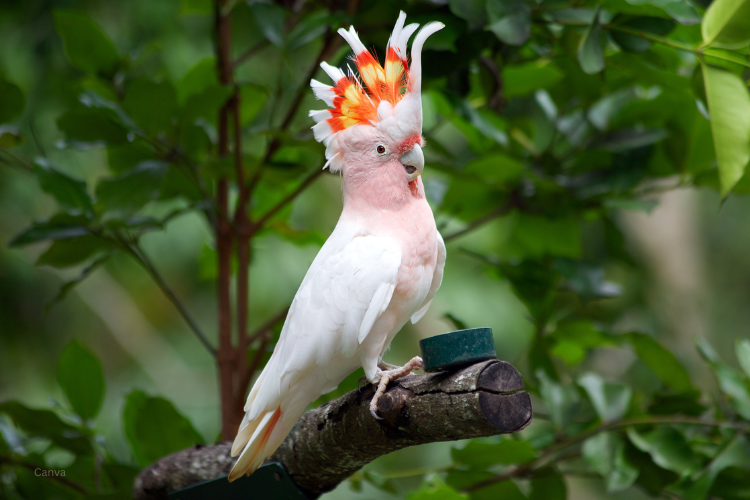
Bringing home either species means accepting a responsibility that may outlast your own lifetime. Large macaws regularly live 60 to 80 years in captivity, while cockatoos frequently reach similar ages with proper care. This longevity transforms pet ownership into a generational commitment that requires careful planning and consideration.
Many families find themselves creating inheritance plans that include provisions for their feathered family members. The emotional bond that develops over decades creates relationships unlike any other pet experience. These birds remember faces, voices, and experiences for their entire lives, making them lifelong companions rather than temporary additions to the household.
5. Destructive tendencies turn household items into expensive confetti.
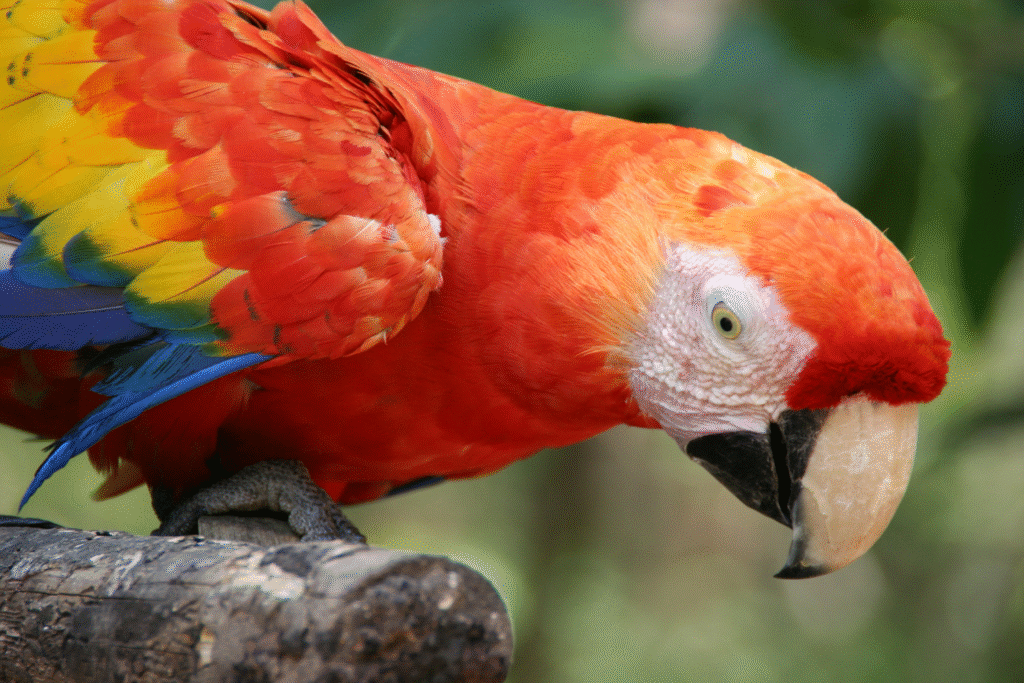
Both species possess beaks powerful enough to crack Brazil nuts, making wooden furniture, electrical cords, and drywall vulnerable targets. Their natural foraging instincts drive them to investigate and dismantle anything within reach, often resulting in costly home repairs. Macaws tend toward methodical destruction, while cockatoos approach demolition with artistic flair.
Prevention becomes the primary strategy for maintaining your home’s structural integrity. Bird-proofing requires constant vigilance and creative solutions that many new owners discover through expensive trial and error. The learning curve can be steep, but understanding their destructive nature as a natural behavior rather than malicious intent helps maintain perspective during challenging moments.
6. Social demands rival those of toddlers requiring constant attention.
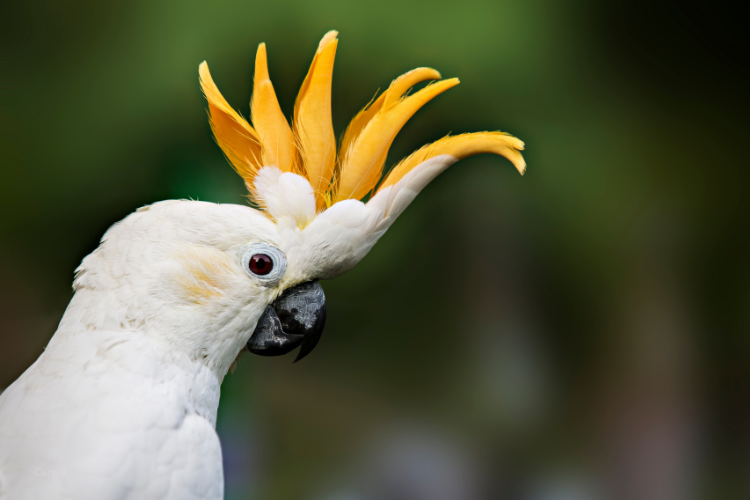
These highly social creatures evolved in flocks where interaction never ceased throughout the day. Isolation triggers behavioral problems that manifest as screaming, feather plucking, and aggression toward family members. Both species require several hours of direct interaction daily to maintain psychological health and happiness.
Working professionals often struggle to meet these intensive social requirements without restructuring their entire lifestyle. The commitment extends beyond feeding and cage cleaning to include active engagement, training sessions, and supervised exercise time. Understanding this need before bringing either species home prevents many behavioral issues that develop from social neglect.
7. Dietary requirements extend far beyond basic seed mixes.
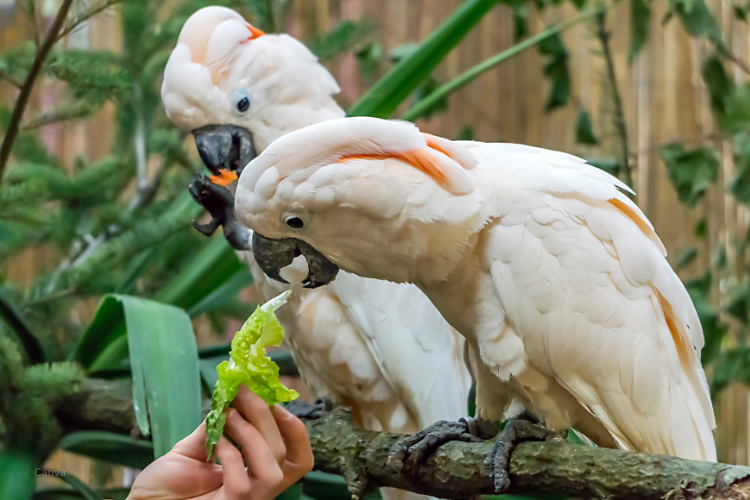
Proper nutrition involves fresh fruits, vegetables, high-quality pellets, and species-specific supplements that require daily preparation. Wild diets include hundreds of plant varieties, nuts, and seasonal fruits that provide complex nutritional profiles difficult to replicate in captivity. Both macaws and cockatoos suffer from health problems when fed inadequate diets consisting primarily of seeds.
Meal planning becomes a significant part of daily bird care that many owners underestimate initially. Fresh foods spoil quickly in warm climates, requiring multiple daily cage cleanings and food replacements. The financial investment in quality nutrition often surprises new bird owners who assumed basic bird food would suffice for these magnificent creatures.
8. Veterinary care requires specialists familiar with avian medicine.
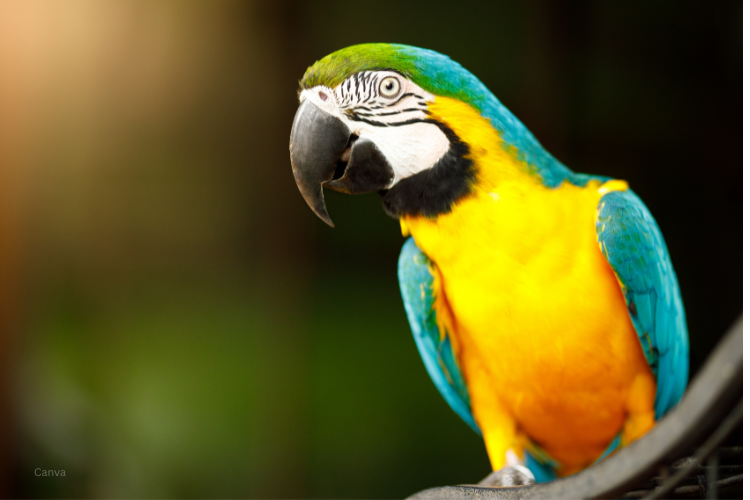
Finding qualified avian veterinarians presents challenges in many geographic areas, often requiring long-distance travel for routine checkups and emergencies. These exotic pets require specialized knowledge that general practice veterinarians rarely possess, making medical care more expensive and logistically complex than typical pet ownership.
Annual wellness examinations, blood work, and emergency treatments can cost thousands of dollars over their extended lifespans. Many bird owners discover too late that their regular veterinarian lacks the expertise needed for proper avian care. Building relationships with qualified specialists before emergencies arise becomes essential for responsible bird ownership.
9. Training demands consistency that tests human patience daily.
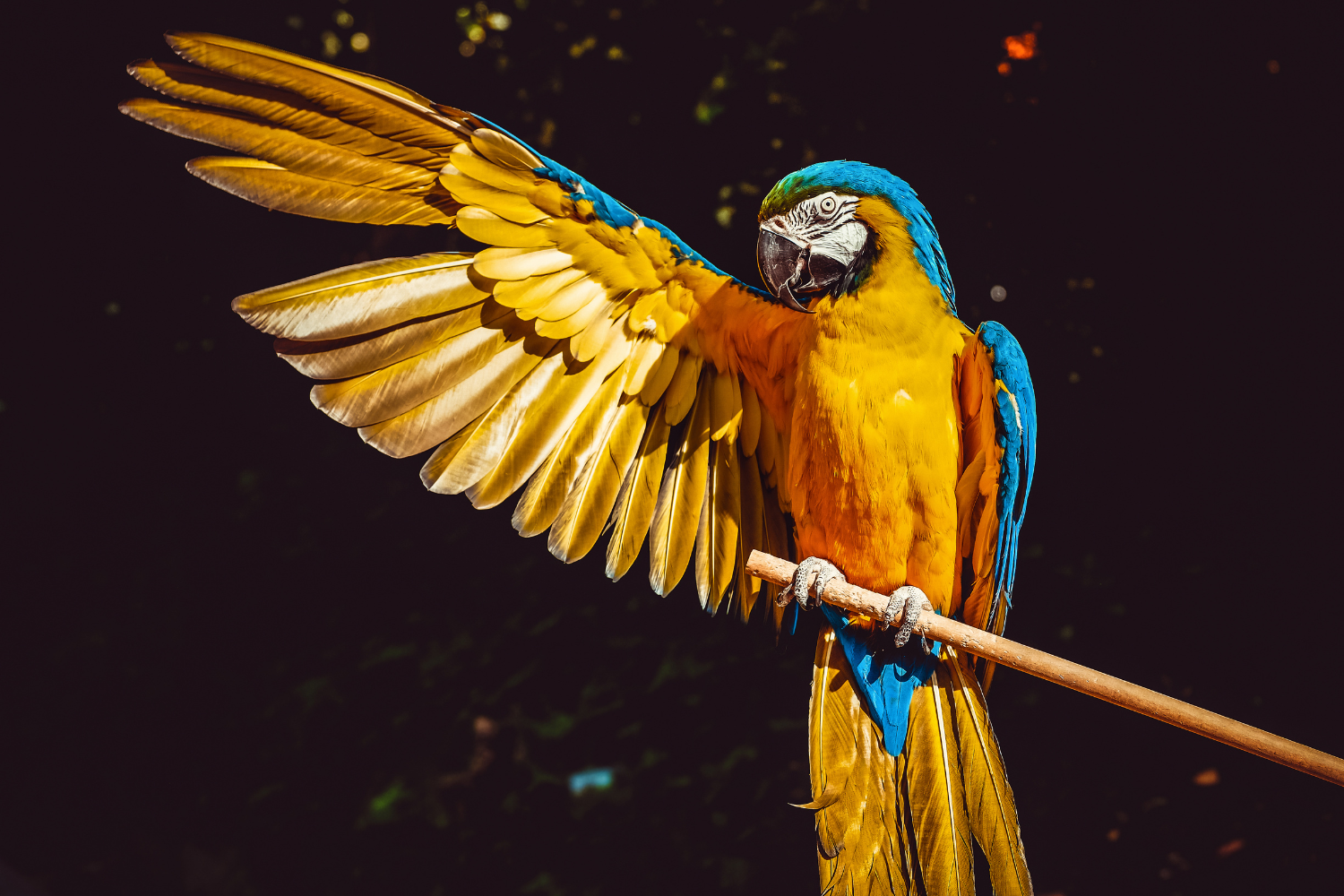
Both species respond to positive reinforcement techniques, but progress occurs slowly and requires unwavering consistency from all household members. Mixed messages from different family members confuse these intelligent birds and can undo weeks of training progress. Successful training requires understanding avian psychology and adapting techniques to individual personality differences.
Behavioral modification becomes an ongoing process rather than a short-term project with quick results. These birds remember negative experiences for years, making patience and positive approaches essential for long-term success. Professional training assistance often proves invaluable for addressing complex behavioral challenges that develop over time.
10. Love multiplies exponentially despite overwhelming challenges.
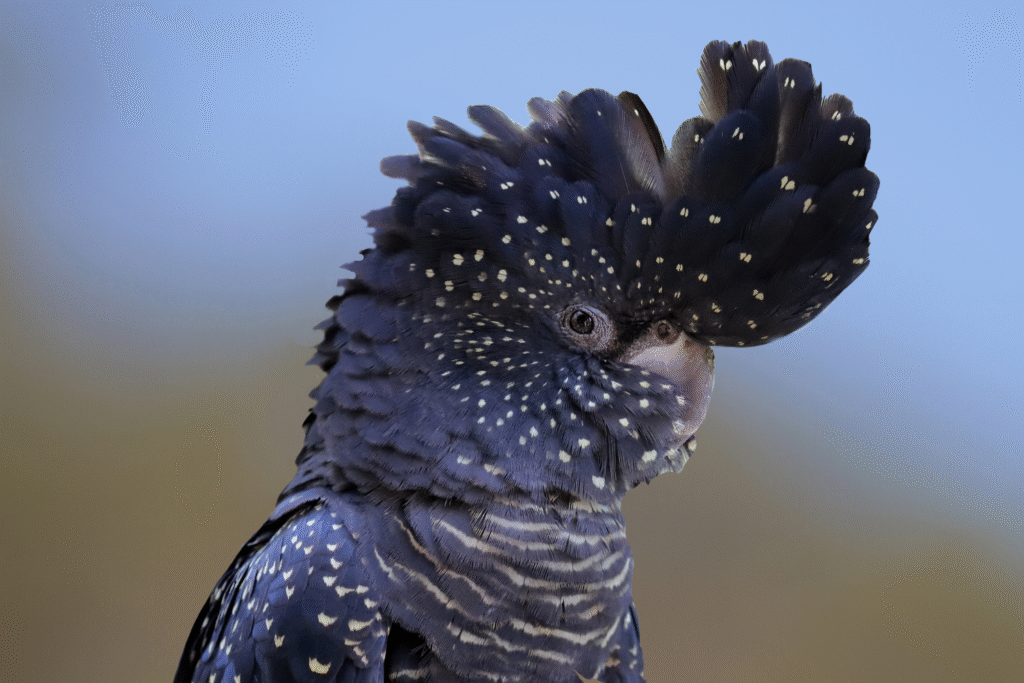
The bond that develops between these remarkable birds and their human families transcends typical pet relationships entirely. Their capacity for affection, loyalty, and companionship creates connections that enrich lives in unexpected ways. Many owners describe their birds as family members whose personalities and quirks become irreplaceable parts of daily life.
Despite the demanding nature of their care requirements, both macaws and cockatoos reward dedicated owners with relat
